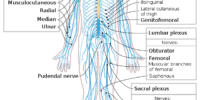Why Hypertension Is Associated With Sleep Disorders?

Hypertension, also known as high blood pressure, is a prevalent health condition that affects a significant portion of the global population. It is associated with various adverse health outcomes, including cardiovascular diseases and organ damage.
In recent years, there has been growing interest in exploring the relationship between hypertension and sleep disorders. Sleep disorders encompass a range of disturbances in the quantity and quality of sleep, such as sleep apnea, insomnia, restless legs syndrome, and circadian rhythm disorders.
This article aims to examine the link between hypertension and sleep disorders, highlighting the common sleep disorders observed in hypertensive individuals and the complex relationship between these two conditions. Understanding this association is crucial as it can provide insights into potential mechanisms underlying the development and progression of hypertension, and may also have implications for the management and treatment of both conditions.
Key Takeaways
- Chronic insomnia and restless leg syndrome have been found to be linked to hypertension.
- Untreated sleep disorders can negatively impact blood pressure regulation and overall health.
- Treating both hypertension and sleep disorders concurrently improves outcomes for patients.
- Lifestyle modifications, such as adopting a healthy diet and regular physical activity, can help manage both hypertension and sleep disorders.
Understanding the Link Between Hypertension and Sleep Disorders
The association between hypertension and sleep disorders has been extensively studied to better understand the underlying mechanisms.
Research has shown that there is a strong link between hypertension and sleep duration, as well as the impact of sleep quality on hypertension management.
Several studies have found that individuals with shorter sleep duration are more likely to develop hypertension. This may be due to the fact that inadequate sleep can lead to increased sympathetic nervous system activity and elevated levels of stress hormones, both of which can contribute to the development of hypertension.
Additionally, poor sleep quality, characterized by frequent awakenings or disrupted sleep patterns, has been associated with higher blood pressure levels.
The exact mechanisms underlying this association are still being investigated, but it is clear that sleep disorders play a significant role in the development and management of hypertension.
Sleep Apnea as a Common Sleep Disorder in Hypertensive Individuals
Sleep apnea, a prevalent sleep disorder among individuals with high blood pressure, has been found to significantly contribute to the development and exacerbation of hypertension.
Sleep apnea is characterized by repetitive pauses in breathing during sleep, leading to oxygen deprivation and subsequent arousal from sleep. These repeated disruptions in sleep patterns can activate the sympathetic nervous system, raise blood pressure, and increase the risk of hypertension.
Moreover, sleep apnea is associated with other cardiovascular risk factors such as obesity, insulin resistance, and inflammation, further contributing to the development of hypertension.
Treatment options for sleep apnea include continuous positive airway pressure (CPAP) therapy, oral appliances, and lifestyle modifications such as weight loss and positional therapy.
By effectively managing sleep apnea, it is possible to improve cardiovascular health and potentially reduce the risk of hypertension in affected individuals.
Insomnia and Hypertension: Breaking the Vicious Cycle
Insomnia, a common condition characterized by difficulty falling asleep or staying asleep, is closely tied to the development and worsening of high blood pressure. The relationship between insomnia and hypertension is bidirectional, with each condition exacerbating the other.
Here are three key points to understand the connection between insomnia and hypertension:
- Sleep deprivation: Insomnia leads to sleep deprivation, which can have a detrimental effect on blood pressure regulation. Chronic sleep deprivation activates the sympathetic nervous system, causing an increase in blood pressure and heart rate.
- Impact on blood pressure: Studies have shown that individuals with insomnia have higher blood pressure levels compared to those without sleep disturbances. The association between insomnia and hypertension is particularly strong in individuals who experience difficulty falling asleep.
- Insomnia treatment options: Addressing insomnia is vital in managing hypertension. Cognitive-behavioral therapy for insomnia (CBT-I) is the recommended first-line treatment. Medications such as hypnotics may be prescribed in some cases, but their long-term use should be carefully evaluated.
Understanding the link between insomnia and hypertension is crucial for developing effective interventions and improving overall cardiovascular health.
Restless Legs Syndrome and its Connection to Hypertension
Restless Legs Syndrome, a neurological disorder characterized by an irresistible urge to move the legs, has been found to be linked to an increased risk of high blood pressure. Research has shown that individuals with Restless Legs Syndrome are more likely to develop hypertension compared to those without the disorder.
The exact mechanism behind this association is not fully understood, but it is believed that the repetitive leg movements and disturbed sleep patterns associated with Restless Legs Syndrome may contribute to the development of hypertension.
Furthermore, lifestyle modifications, such as regular exercise, avoiding caffeine and alcohol, and maintaining a regular sleep schedule, have been suggested as potential treatment options for Restless Legs Syndrome.
By managing the symptoms of Restless Legs Syndrome, it is possible to reduce the risk of developing hypertension and its associated complications.
Circadian Rhythm Disorders and Hypertension: A Complex Relationship
This discussion focuses on the complex relationship between circadian rhythm disorders and hypertension, with a particular emphasis on how disruptions in circadian rhythm can impact blood pressure.
Research suggests that disturbances in the body’s natural sleep-wake patterns can lead to an increase in blood pressure, potentially exacerbating hypertension.
Therefore, establishing healthy sleep-wake patterns becomes crucial in the management of hypertension.
How Disruptions in Circadian Rhythm Impact Blood Pressure
Disruptions in circadian rhythm have been shown to have a significant impact on blood pressure levels. Shift work, which often involves irregular sleep patterns and night-time wakefulness, has been associated with an increased risk of hypertension. This may be due to the disturbance in the body’s natural sleep-wake cycle, leading to inadequate rest and increased sympathetic nervous system activity.
Additionally, shift work can disrupt the secretion of melatonin, a hormone involved in regulating sleep and blood pressure. Reduced melatonin levels have been associated with higher blood pressure levels, potentially contributing to the development of hypertension. Furthermore, the timing of melatonin secretion is influenced by the body’s internal clock, and disruptions in circadian rhythm can alter this timing, further impacting blood pressure regulation.
Overall, the relationship between disruptions in circadian rhythm, melatonin, and hypertension highlights the importance of maintaining a regular sleep-wake cycle for optimal blood pressure control.
Establishing Healthy Sleep-Wake Patterns for Hypertension Management
Establishing regular and consistent sleep-wake patterns is essential for individuals seeking to effectively manage their blood pressure and promote overall cardiovascular health. By incorporating healthy sleep habits and following sleep hygiene techniques, individuals can improve their sleep quality and reduce the risk of hypertension.
To establish healthy sleep-wake patterns for hypertension management, individuals should consider the following:
- Consistent sleep schedule: Going to bed and waking up at the same time every day helps regulate the body’s internal clock, promoting better sleep quality.
- Creating a sleep-friendly environment: A comfortable and dark bedroom with a cool temperature can enhance sleep quality and promote relaxation.
- Limiting exposure to electronic devices before bedtime: The blue light emitted by electronic devices can disrupt the production of melatonin, a hormone that regulates sleep. Switching off electronic devices at least an hour before bed can improve sleep quality.
By incorporating these techniques and establishing healthy sleep habits, individuals can better manage their blood pressure and improve overall cardiovascular health.
Other Sleep Disorders Associated with Hypertension
Other sleep disorders, such as sleep apnea and insomnia, have been found to have a strong association with hypertension. Sleep apnea is characterized by interruptions in breathing during sleep, leading to decreased oxygen levels and increased blood pressure. It is estimated that up to 50% of individuals with hypertension also have sleep apnea.
Insomnia, on the other hand, is characterized by difficulty falling asleep or staying asleep. Chronic insomnia has been linked to increased blood pressure and a higher risk of developing hypertension. Both sleep apnea and insomnia can have a significant impact on overall health. They can lead to daytime sleepiness, decreased cognitive function, and increased risk of cardiovascular events.
Treatment options for these sleep disorders include continuous positive airway pressure (CPAP) therapy for sleep apnea and cognitive behavioral therapy for insomnia. Managing these sleep disorders is crucial for improving blood pressure control and overall health.
The Importance of Treating Both Hypertension and Sleep Disorders
The association between hypertension and sleep disorders is well-established. In addition to sleep apnea, other sleep disorders such as insomnia and restless leg syndrome have also been found to be associated with hypertension. However, it is not enough to simply recognize these associations; it is crucial to understand the importance of treating both hypertension and sleep disorders concurrently.
Treating hypertension and sleep disorders together can lead to improved outcomes for patients. Medications play a vital role in managing both conditions. Antihypertensive medications can help control blood pressure, reducing the risk of cardiovascular events. Similarly, medications targeting sleep disorders can improve sleep quality, leading to better overall health.
To delve deeper into the significance of treating both hypertension and sleep disorders, consider the following points:
- The impact of untreated sleep disorders on blood pressure regulation.
- The potential benefits of combination therapy in managing both conditions.
- The role of lifestyle modifications in conjunction with medication.
- The need for comprehensive evaluation and monitoring to optimize treatment outcomes.
By addressing both hypertension and sleep disorders, healthcare providers can optimize patient care and promote better health outcomes.
Lifestyle Modifications for Managing Hypertension and Sleep Disorders
Implementing lifestyle modifications can significantly improve the management of both hypertension and sleep disorders, fostering a sense of empowerment and control over one’s health.
Lifestyle changes play a crucial role in reducing blood pressure and improving sleep quality. These modifications include adopting a healthy diet, engaging in regular physical activity, maintaining a healthy weight, limiting alcohol consumption, and avoiding smoking.
A diet low in sodium and high in fruits, vegetables, whole grains, and lean proteins, such as the DASH (Dietary Approaches to Stop Hypertension) diet, has been shown to effectively lower blood pressure.
Additionally, engaging in regular physical activity, such as aerobic exercises or strength training, can help reduce blood pressure levels and promote better sleep.
Alternative therapies, such as relaxation techniques, meditation, and acupuncture, may also aid in managing both hypertension and sleep disorders.
By making these lifestyle changes and exploring alternative therapies, individuals can take an active role in managing their hypertension and sleep disorders, leading to improved overall well-being.
Frequently Asked Questions
What is the definition of hypertension?
Hypertension, also known as high blood pressure, is a medical condition characterized by consistently elevated blood pressure levels. It is primarily caused by factors such as genetics, obesity, sedentary lifestyle, excessive salt intake, and chronic conditions like kidney disease and diabetes. Hypertension is associated with an increased risk of cardiovascular diseases, including heart attacks, strokes, and heart failure.
What are the common symptoms of sleep disorders?
Common symptoms of sleep disorders include difficulty falling asleep, excessive daytime sleepiness, frequent waking during the night, snoring, and restless leg syndrome. Treatment options vary depending on the specific sleep disorder and may include medication, therapy, or lifestyle changes.
How does sleep apnea affect blood pressure levels?
Sleep apnea has a detrimental impact on cardiovascular health, including its association with hypertension. Sleep apnea contributes to elevated blood pressure levels, increasing the risk of hypertension and its related complications.
Are there any natural remedies or lifestyle changes that can help manage both hypertension and sleep disorders?
Natural remedies and alternative therapies can help manage both hypertension and sleep disorders. Lifestyle changes such as regular physical activity, stress reduction techniques, and a healthy diet can be effective in improving both conditions.
Can treating sleep disorders effectively lower blood pressure in hypertensive individuals?
Treating sleep disorders in hypertensive individuals can effectively lower blood pressure. Medication plays a role in managing sleep disorders, while improving sleep quality is crucial for overall cardiovascular health and blood pressure regulation.








